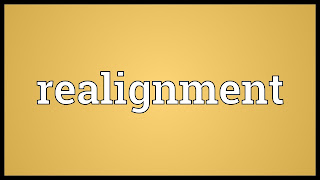http://www.stephenmarche.com/
Stephen Marche is a Canadian journalist who writes for American publications. In this morning's
New York Times, he
provides Americans with some background information on Canada's ongoing federal election and current prime minister:
THE prime minister of Canada, Stephen Harper, has called an election for Oct. 19, but he doesn’t want anyone to talk about it.
He
has chosen not to participate in the traditional series of debates on
national television, confronting his opponents in quieter, less public
venues, like the scholarly Munk Debates and CPAC, Canada’s equivalent of
CSPAN. His own campaign events were subject to gag orders until a
public outcry forced him to rescind the forced silence of his
supporters.
Mr.
Harper’s campaign for re-election has so far been utterly consistent
with the personality trait that has defined his tenure as prime
minister: his peculiar hatred for sharing information.
Marche then goes on to document Harper's attempts over almost a decade to ensure Canadian ignorance:
But the nine and half years of Mr. Harper’s tenure have seen the
slow-motion erosion of that reputation for open, responsible government.
His stance has been a know-nothing conservatism, applied broadly and
effectively. He has consistently limited the capacity of the public to
understand what its government is doing, cloaking himself and his
Conservative Party in an entitled secrecy, and the country in ignorance.
Mr.
Harper’s war against science has been even more damaging to the
capacity of Canadians to know what their government is doing. The prime
minister’s base of support is Alberta, a western province financially
dependent on the oil industry, and he has been dedicated to protecting
petrochemical companies from having their feelings hurt by any
inconvenient research.
In
2012, he tried to defund government research centers in the High
Arctic, and placed Canadian environmental scientists under gag orders.
That year, National Research Council members were barred from discussing
their work on snowfall with the media. Scientists for the governmental
agency
Environment Canada, under threat of losing their jobs, have been
banned from discussing their research without political approval.
Mentions of federal climate change research in the Canadian press have
dropped 80 percent. The union that represents federal scientists and
other professionals has, for the first time in its history, abandoned
neutrality to campaign against Mr. Harper.
His
active promotion of ignorance extends into the functions of government
itself. Most shockingly, he ended the mandatory long-form census, a
decision protested by nearly 500 organizations in Canada, including the
Canadian Medical Association, the Canadian Chamber of Commerce and the
Canadian Catholic Council of Bishops. In the age of information, he has
stripped Canada of its capacity to gather information about itself. The
Harper years have seen a subtle darkening of Canadian life.
Harper's single minded focus, Marche writes, has been twofold: to close the Canadian mind and to change the essential nature of the country. This election, therefore, is seminal:
Whether or not he loses, he will leave Canada more ignorant than he
found it. The real question for the coming election is a simple but
grand one: Do Canadians like their country like that?
This entry is cross posted at
The Moderate Voice.



























